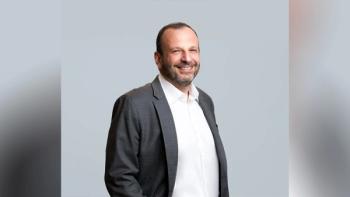
- Pharmaceutical Executive-06-01-2021
- Volume 41
- Issue 6
Innovation in High Gear
Thrust into a commercial-stage company in just months, Moderna moves full steam ahead.
Transitioning from a clinical-stage biotech to a commercial-stage company with one of the most in-demand products in the world isn’t an easy task. Undergoing that transformation in less than a year is even more challenging. But that’s exactly what Moderna, a company that grew from about 830 employees in January 2020 to more than 1,300 in January of 2021, has accomplished.
Shortly after FDA approved the company’s COVID-19 vaccine for emergency use authorization (EUA) on Dec. 18, 2020, it brought on Corinne Le Goff, PharmD, MBA, as its chief commercial officer. Le Goff, whose resume includes positions at Sanofi, Pfizer, Merck, Roche, and Amgen, was challenged with rethinking how to approach commercialization in a way as innovative as Moderna itself.
“We became a global commercial organization from day one,” says Le Goff. “This is a massive undertaking. But at the same time, it’s exhilarating. We’ve built all the capabilities that allow us to serve broad geographies, ensuring pharmacovigilance, ensuring regulatory processes—everything that you need to commercialize a product successfully.”
Tasked with promoting the novel platform of mRNA to the world, Moderna had to rethink traditional ways of commercialization. The methods used by big pharma over the past 50 years or so didn’t make sense in the COVID environment.
“We have 14 programs that have entered clinical studies,” says Le Goff. “We are developing these programs in an accelerated way, because the mRNA platform allows us to do so. And because mRNA is an information molecule, we believe there would be a much higher probability of technical success of a drug starting in the clinic. For example, our CMV (cytomegalovirus) vaccine uses exactly the same chemistry, the same formulation, and the same manufacturing processes as the Moderna COVID-19 vaccine.”
While Moderna spent the past 10 years building R&D and translational medicine capabilities, it was doing so with a full digital mindset. “We’re doing the same thing on the commercial side of the organization,” says Le Goff. “It’s fully digitally empowered.”
Using the company’s accelerated development as a bellwether for progress, Le Goff hopes the decisions that facilitated the expedited timeline to EUA will influence the future of pharma.
“What we have learned through COVID is first, this extraordinary collaboration between the regulators, the industry, academia, the government, which had never crystallized in such a way before. I think that’s a model to continue. There are so many other disease areas that we should address in that way,” she says. “And if there is a path for accelerated approvals, if there is a path for real-world data generation that would allow us to enhance the product profiles as we go, so really making sure that we can give access first to patients, I think that will be a model that we can bring forward. There are a lot of very positive learnings in the COVID experience.”
COVID has also prompted Moderna to prioritize its communications strategy. While it is a young company that wants to be known and have its platform understood, instead of focusing solely on its own product, the company is committed to promoting the vaccine in general. “The message [is] go out and get your vaccine, whatever vaccine, just go out and get your vaccine. We need to get ahead of this virus,” says Le Goff. “We hope we can convey this message. We’ve been super vocal about it. We are working hand in hand with governments to make sure that immunization campaigns are successful. We want to play our part in doing this.”
Concerned about vaccine hesitancy, Le Goff realizes the importance of educating people about the vaccine and mRNA specifically. “We’re talking about an mRNA platform,” she says. “That’s a complicated word. How can you make it easy for people to understand what it is, that it’s safe, that it’s important for them so that they can resume a normal life and be with friends and family? There’s a lot of education that needs to happen.”
Because of the complex nature of the immunization process, Moderna has engaged with a coalition of partners to help. For example, the company established a partnership with Uber to help patients get to immunization centers. It also collaborated with Truepill, which provides immunizations at home for people who can’t move. “We have a number of other partnerships that we’re bringing under this umbrella of partners,” says Le Goff. “I think that’s the way forward. That’s quite different from what the industry has done in the past. You’ll see that Moderna will be innovative in every aspect of what it does, including its commercialization model and go-to-market approach.”
Le Goff joined Moderna just a month after EUA and had to jump right into action. She understood she had to create a commercial organization and all those capabilities, but she also had to tackle the massive issue of getting people vaccinated.
Finding resources within Moderna and relying on the company’s network of experience was extremely helpful.
“I had to get up to speed very, very, very quickly,” she says. “I had not worked in vaccines before, and all of a sudden I’m the head of a commercial organization that’s a leader in vaccines now. [I appreciated] that the people who join the company have very broad expertise in a number of areas, so it’s all new, but at the same time we can benefit from the experience we’ve had.”
As Le Goff leapt from big pharma to Moderna, she was inspired by the company’s driving culture of innovation. She notes a common characteristic of the people who join Moderna is that everyone knows the industry inside out and they all want to build something different. “We’ve been around,” she says. “When you join Moderna it’s because you are up for the adventure. The idea is to build a disruptive company. And we’ve seen it all, so we know where it can be disrupted.”
While employees’ experience is deep and broad, it’s this mindset and agility that fuel innovation. Moderna is interested in establishing a path toward something that will completely disrupt and revolutionize medicine beyond vaccines—in oncology and other therapeutic areas as well.
Le Goff is proud to be a part of a team that is “bold, curious, and relentless” and driven by the company’s mission. “It’s extraordinary to be part of providing a solution,” she says. “I couldn’t have hoped for a better role, frankly. We just want to do this and be successful and get ahead of this virus. We don’t sleep a lot, and the concept of weekend kind of disappeared, but we’re all in it.”
She’s been so busy, in fact, that she still hasn’t fully settled in after her relocation from California to the Boston area when she came to Moderna. “I guess when I have free time, I’ll have to unpack some boxes,” she says.
Elaine Quilici is Pharm Exec’s Senior Editor. She can be reached at
Articles in this issue
over 4 years ago
Three Ways to Overcome Any Market Challengeover 4 years ago
Staying the Course: Double Down on Launch Agilityover 4 years ago
Betting on Its Base in Virologyover 4 years ago
Scientific Rigor, Urgent Actionover 4 years ago
Meeting the Crisis Head-Onover 4 years ago
Bonds Old and New to the Rescueover 4 years ago
2021 Pharm Exec Top 50 Companiesover 4 years ago
After Blowout 2020, Biotech Worst Performing Sector YTDover 4 years ago
A Steward of ScienceNewsletter
Lead with insight with the Pharmaceutical Executive newsletter, featuring strategic analysis, leadership trends, and market intelligence for biopharma decision-makers.




